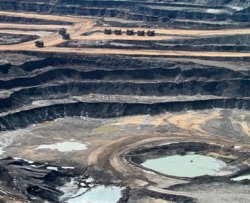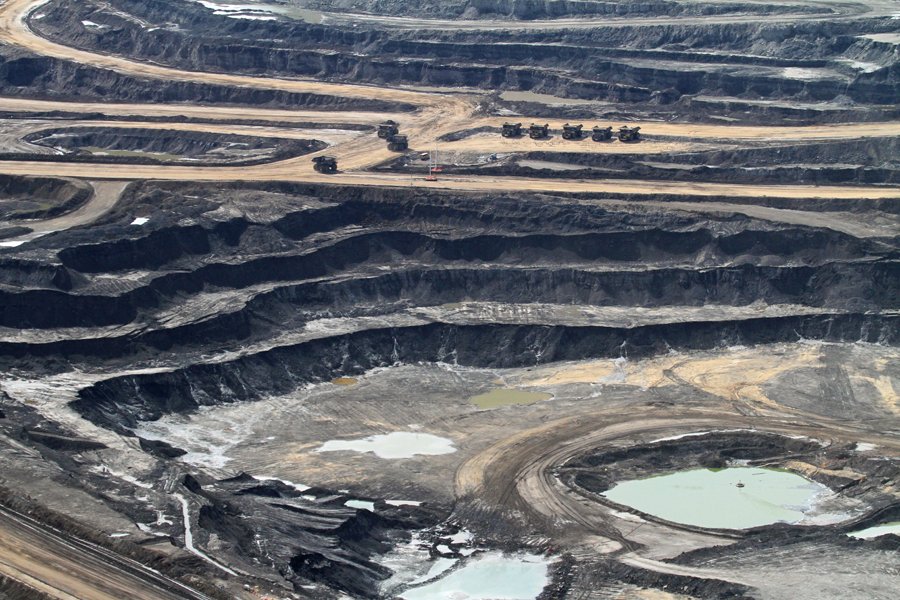
Poisonous as well as ugly.
Here’s yet another way that tar-sands oil extraction sucks. From The New York Times:
The development of Alberta’s oil sands has increased levels of cancer-causing compounds in surrounding lakes well beyond natural levels, Canadian researchers reported in a study [PDF] released on Monday. And they said the contamination covered a wider area than had previously been believed.
For the study, financed by the Canadian government, the researchers set out to develop a historical record of the contamination, analyzing sediment dating back about 50 years from six small and shallow lakes north of Fort McMurray, Alberta, the center of the oil sands industry. Layers of the sediment were tested for deposits of polycyclic aromatic hydrocarbons [PDF], or PAHs, groups of chemicals associated with oil that in many cases have been found to cause cancer in humans after long-term exposure.
“One of the biggest challenges is that we lacked long-term data,” said John P. Smol, the paper’s lead author and a professor of biology at Queen’s University in Kingston, Ontario. “So some in industry have been saying that the pollution in the tar sands is natural, it’s always been there.”
The researchers found that to the contrary, the levels of those deposits have been steadily rising since large-scale oil sands production began in 1978.
As scientist David Schindler told British Columbia news site The Tyee, the study’s findings should “deep-six once and for all the bullshit that all pollution from the tar sands is natural.”
Schindler wasn’t involved in this study, but he’s done previous research on tar-sands pollution and is now feeling vindicated. More from The Tyee:
The [new] study, published by the prestigious Proceedings of the National Academy of Sciences, also confirms the conclusions of two independently funded papers by water ecologist David Schindler and Erin Kelly. These now highly cited studies roused the ire of industry and embarrassed the Alberta government by proving widespread water contamination near the mining project.
The first 2009 study found that oil sands air pollution from mines and upgraders blackened the snow with thousands of tonnes of bitumen particulates and PAHS during the winter within a 50 kilometre radius of the project. When the snow melted in the spring, the contaminants washed into the Athabasca River. The pollution amounted to an undisclosed annual oil spill between 5,000 to 13,000 barrels.
A follow-up 2010 study concluded that air pollution and watershed destruction by the oil sands industry annually added a rich brew of heavy metals including arsenic, thallium and mercury into the Athabasca river and at levels up to 30 times greater than permitted by pollution guidelines. Many heavy metals can increase the toxicity of PAHs too.
Both studies found that industry-funded monitoring was too haphazard to find evidence of contamination by toxic organic pollutants such as PAHs.
Though the new study was sponsored and paid for by the Canadian government, don’t expect the government to do anything to rein in tar-sands exploitation. On the contrary, Conservative Prime Minister Stephen Harper’s administration has “muzzled government climate change scientists, reduced other environmental monitoring, [and] gutted key environmental laws (most fish habitat is no longer protected),” as The Tyee reports. Maybe it’s lucky this study even got done.



